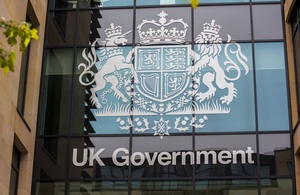
UK: Deliveroo to boost government efforts to tackle variants of concern
Deliveroo set to support NHS Test and Trace to raise awareness of testing response for variants of concern
From today Deliveroo will notify customers through their app and website to let them know if surge testing is happening in their area, as part of efforts to strengthen the decisive action already taken by the government to tackle rising cases of variants of concern across the country.
This new tool means that when customers are using the Deliveroo app, notifications will be visible targeted in areas where the new COVID-19 variant is known to be spreading fastest. These are areas where surge testing is being offered by the local authority, including areas of where additional support packages are in place, including for testing, tracing and self-isolation.
Messages will be displayed to customers after the checkout stage of placing their order on the app, and they will be advised to visit their local authority’s website to find out more information on where surge testing is being offered in the area. The Deliveroo app banner will also link to the government’s website with more information on how people can get tested.
In addition to surge testing, the government is providing additional support packages to stop the spread of the Delta variant which includes surge testing, tracing, isolation support and maximising vaccine uptake. This has been rapidly deployed across areas including Greater Manchester, Lancashire and Cheshire.
Health and Social Care Secretary Matt Hancock said:
We are using every tool at our disposal to stop the spread of variants of concern, and thanks to Deliveroo, this new partnership will reach even more of the public to help us test as many people as possible and identify variants of concern.
The government is committed to sending these variants into retreat and through our offer of free, twice-weekly testing combined with the phenomenal progress of our vaccination programme, we are doing everything we can to protect loved ones.
This further support follows extensive COVID-19 surveillance and, thanks to the UK’s world-leading genomic sequencing capability, the government has detected a number of cases of the Delta (B1.617.2) variant in these communities. Latest figures from Public Health England show that numbers of the Delta variant in the UK have risen by 29,892 in the last week.
Testing, isolation and vaccinations will help suppress and control the spread of the virus and variants in both the short and longer term, when used in combination with people following existing guidance such as hands, face, space and fresh air.
Deliveroo reaches over 60% of the UK population, including areas where surge testing is deployed. The delivery company works with 50,000 riders and 44,000 restaurants across the UK and during the course of the pandemic has delivered 1 million free meals to NHS workers and vulnerable groups.
Will Shu, CEO and founder of Deliveroo, said:
We wanted to do our bit to help NHS Test and Trace when they asked. It’s vital that people have the information they need to keep themselves and their loved ones safe. We’ve used our network to support the NHS throughout the pandemic and will continue to do so however we can. We hope this and other measures the government is taking will accelerate the return to normality we all want to see.
With around one in three people not showing symptoms of COVID-19, everybody who lives or works in postcodes where surge testing is taking place is strongly encouraged to take a COVID-19 PCR test, whether they are showing symptoms or not.
Additional surge testing is finding and isolating variants of concern quickly. Enhanced contact tracing will be used for individuals testing positive with a variant of concern. In these instances, contact tracers will look back over an extended period in order to determine the route of transmission.
By using PCR testing, positive results can be sent for genomic sequencing at specialist laboratories, helping us to identify variant of concern cases and their spread.
People with symptoms should book a free test online or by phone so they can get tested at a testing site or have a testing kit sent to them at home. Those without symptoms should visit the local authority website for more information. People should also continue using twice-weekly rapid testing alongside the PCR test as part of surge testing.
